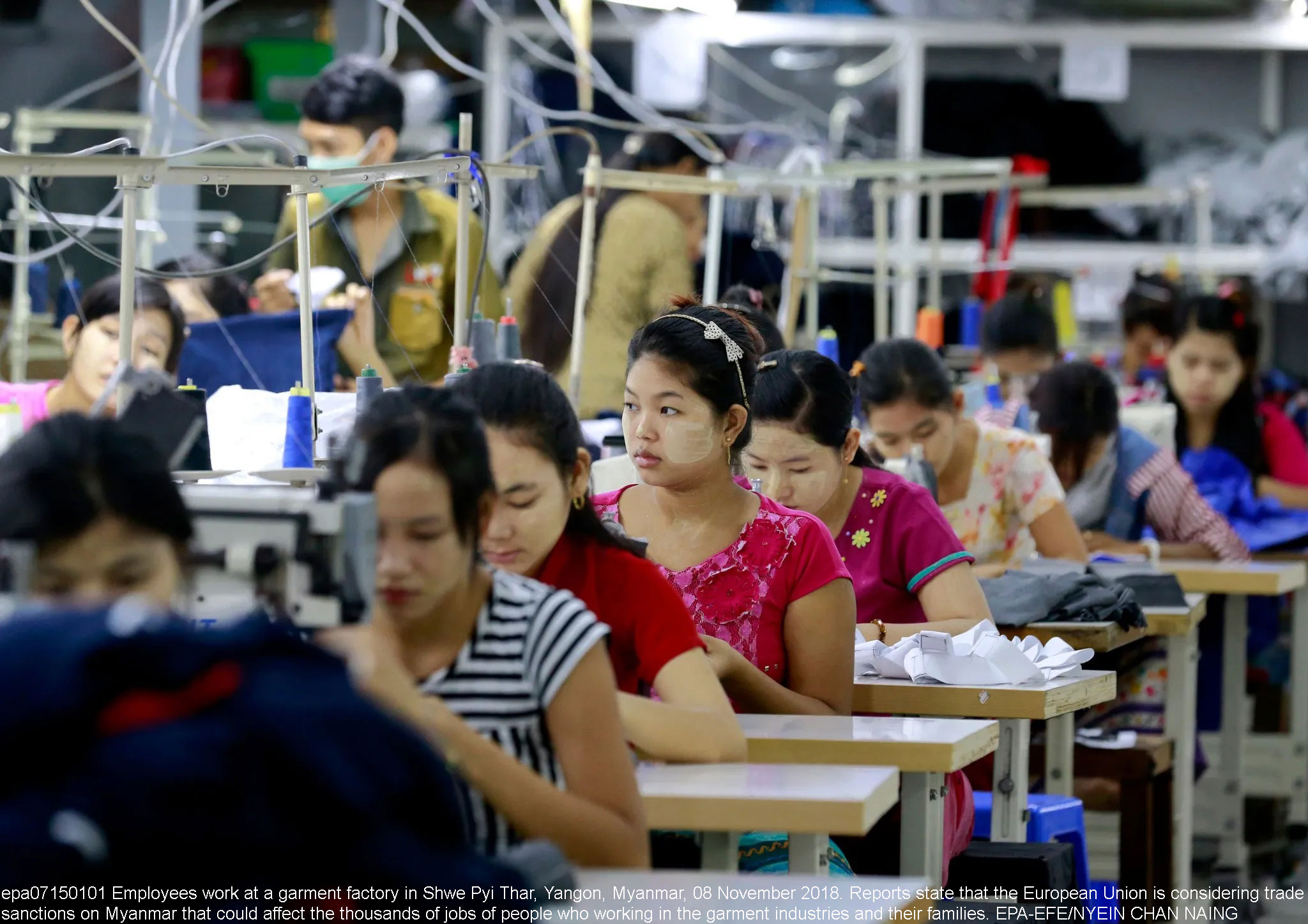
Category: GARMENTS
Country: Myanmar
Region: Asia
Han Thit
June 23, 2023
The condition and whereabouts of 10 Yangon garment factory workers remain unknown more than one week after their arrest by the military council, after they made demands that their employers nominally increase their wages.
Most of the individuals in question are members of the labour union in the Hosheng Myanmar factory in the Shwe Lin Pan Industrial Zone in Shwepyithar Township.
Twenty-nine-year-old Thu Thu San was the first to be arrested following negotiations on June 14 between seven union members and a Hosheng Myanmar factory representative at a junta-controlled township administration office.
Four more union members were also detained four days later: Aye Thandar Htay, Thandar Aye, May Thu Min and Aung Aung. Three more workers—two women and one man—were also held for alleged affiliation with the targeted individuals, according to another employee.
Since their arrest, the source added that he had not been able to make contact with any of the detainees, who are all in their 20s and had been working at the factory between one and four years.
“They didn’t contact the victims’ families either, but we are trying to file an appeal through a lawyer,” the employee said.
There have been additional rumoured arrests at Hosheng Myanmar, but Myanmar Now was unable to independently verify further detentions at the time of reporting. Several members of the factory’s union have also gone into hiding.
At another garment factory in Hlaing Tharyar Township, Sun Apparel Myanmar, some 60 workers have also gone into hiding, leading to a dismissal from their jobs, according to a source close to the employees. She said that they feared arrest after two labour organisers at the site were detained on June 14 and 15: Thidar Win and Hlaing Win Htet. Their whereabouts were also unknown at the time of reporting.
They had led protests at the factory on June 6, asking for an increase to wages. Workers from several factories have been demanding that daily minimum wages be raised from 4,800 kyat ($2.28)—to which it was set in 2018 by the elected National League for Democracy government, ousted in the 2021 coup—to 5,600 kyat ($2.65), despite a schedule for reassessment that was supposed to take place in 2020.
Sun Apparel Myanmar is Thai-owned, with around 500 workers, and makes clothing for German sportswear brand Jako.
The European Union’s (EU) delegation to Myanmar issued a statement on Tuesday expressing concern for the detained workers’ wellbeing and calling for their immediate release. The EU also urged the military council to cease arrests of civilians for exercising their rights to freedom of speech and association, and for all stakeholders to uphold the basic workplace standards prescribed by the International Labour Organisation.
Moe Sandar Myint, President of the Federation of General Workers Myanmar (FGWM), told Myanmar Now that the EU should take a stronger stance in response to the ongoing rights violations in the country’s factories, which frequently produce goods for European companies.
“Issuing a statement is not the right way to help the workers in need. They should be taking more practical action against the military and use their full authority,” she said.
A four-year, 3 million euro plan to stimulate clothing production in Myanmar put forward by the European Chamber of Commerce (Myanmar) and the German-based Seaqua Group—dubbed the Multi-Stakeholder Alliance for Decent Employment in Myanmar, or “MADE in Myanmar”—has met with criticism from workers’ rights advocates, who say it conceals labour rights violations and will legitimise the military regime without benefitting workers.
A September 2022 report by international workers’ rights organisation Ethical Trading Initiative (ETI) concluded that it was not possible to guarantee basic worker rights in Myanmar under the coup regime nor for business to abide by humanitarian responsibilities while working in the country.
“Brands will find it nearly impossible to conduct normal human rights due diligence, let alone the enhanced due diligence that the present situation in Myanmar demands,” the ETI statement said.
Courtesy: Myanmar-now.org
Copyrights © 2025 GLOBAL TEXTILE SOURCE. All rights reserved.